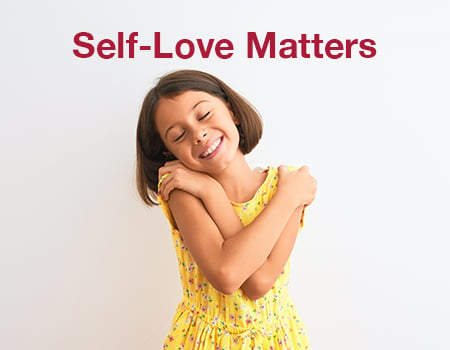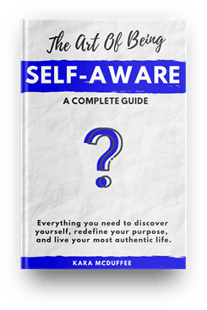.png?width=600&name=1%20(2).png)
I felt so accomplished; after years of half-hearted attempts, I had finally started a consistent journaling habit. For months every morning, the notebook and pen found their way into my hand, and I proudly did what I always knew was beneficial for my life: I journaled.
Until I didn't.
The habit didn't stop all at once. There was a random day when I had to leave earlier than usual. Another one when I didn't sleep well. One when a huge work project hung over my head and demanded my attention as soon as the alarm went off. And over time, this gradual line of decision-making–to forgo journaling in place of something that felt more pressing–made my new habit all but disappeared.
How had I finally started and stuck with such a beneficial habit for months–and one I was so motivated to do–only to let it fade away so quickly?
Turns out, the difference between "someone with a new journaling habit" and becoming "a journaler" is pretty vast indeed. And, much to our downfall, it has little to do with us as individuals. Instead, it has everything to do with our outdated mindsets and human instincts that make it challenging for us.
We can fight these obstacles, but we need to arm ourselves with weapons and become Inner Work Warriors to pursue our self-growth.
Weapon #1: Fully commit to your habit.
We're required to make thousands of choices every day. That's why our brains have developed a bunch of shortcuts and biases to help us out. If we didn't have shortcuts, we'd be mentally exhausted. However, in today's modern world, our brains still have to work really hard because of the overabundance of choices. As a result, we experience decision fatigue.
.png?width=600&name=2%20(2).png)
Choosing to journal is a decision we have to make, and it can be a difficult one. Whether we're tired, hungry, or merely accustomed to our normal behaviors, deciding to do a new habit can feel exhausting. At any given time, choosing not to journal will always feel easier than choosing to journal.
That's why we have to take away the act of choosing. To do this, you need to commit yourself to this new habit. Rather than saying, "I'll give it a try and see how it goes," you need to say, "I'm 100% committed to journaling." Even 99% committed means that you open your brain to the 1% question: Do I want to journal right now?
You can change journaling from a "desire" to a commitment by investing yourself in the pursuit. Here are two main ways you can invest yourself:
- You can invest in journaling financially. We hate losing more than anything, which is why investing money can help motivate you to stick to journaling. Consider paying for more journaling courses, buying a nice notebook and pen, or putting money aside as a "reward" for journaling. The more money you put in, the more you'll be motivated to stick with it so as not to lose out on what you started.
- You can invest in journaling through your relationships. There's a reason sharing our goals with other people can help motivate us. When we make our plans public, we raise the stakes of our commitment. If we don't stick with it, we risk our character and respect. That's why accountability partners, social media postings, and public declarations can help your investment.
The more you invest in the habit, the more likely you'll stick with your commitment.
Weapon #2: Outsmart your brain by creating an optimal environment.
The problem with starting something new is that we assume we're in control of our actions. The reality is that outside stimuli control us. We're more reactive than proactive (and the amount of technology we have amplifies this fact.)
For example, if given a choice between picking up our phone or our journal, we're going to choose our phone. It's actually not even a choice. Our bodies will just react to the emotion-driven-response patterns that have formed over our lives. (And our brains are too tired from decision fatigue to choose anything different.)
.png?width=600&name=3%20(2).png)
Therefore, we must create an optimal environment. The commitment to journaling doesn't come in our daily choices. We must commit to creating an environment that will promote this habit and amplify our motivation.
You need to find ways to create an environment that encourages journaling. This might include physical proximity, daily schedule, or helpful rewards.
For example, consider what you do when you wake up. Instead of reaching for your phone, can you have your journal be the first thing you grab? Or, before dinner, can you force yourself to journal before pulling out food?
Creating an optimal environment also includes setting the scene while you're journaling. Our phones and technology are constant distractions. Can you leave your phone in the other room while you journal? Can you go somewhere that you know will be quiet and uninterrupted?
Don't make your outdated brain-body work by trying to choose between stimuli. Instead, make it so journaling is the only available option.
Weapon #3: Utilize morning and evening time to your advantage.
As you consider how to create an optimal environment, you're going to want to consider the science behind timing. The best times to journal are right when we wake up and right before we go to bed. In both instances, your brain is primed for creativity, reflection, and connections.
Let's look at the advantages of creating a morning or evening journaling routine.
.png?width=600&name=4%20(2).png)
- Journaling when you wake up.
While we sleep, our subconscious is still firing away with memories and thoughts. Therefore, when we wake up, our brain is full of ideas and epiphanies that are waiting to come out. If you immediately distract yourself with your phone or daily to-do's, these ideas won't formalize. Our brains are primed for creativity and insight when we first wake up - and journaling will bring them out.
The other advantage of journaling in the morning is that your brain hasn't experienced decision fatigue yet. Your motivation is fresher, and you'll have more energy to journal. This energy might not come immediately, but if you train your brain with a new morning routine, you'll be surprised by how quickly you can create a new habit.
- Journaling before you go to bed.
We need to allow ourselves time at the end of the day to wind down. As our brains get ready to store the day's events into memory while we sleep, we must give them the space to do so. When we occupy our minds with technology or distractions until the moment we fall asleep, we take away the opportunity for our brain to recover and reflect.
However, if we use the time before bed to reflect on the day, we prime our subconscious to have a thought-provoking night while we sleep. The time spent journaling before bed doesn't need to be lengthy. Merely writing a bulleted list of the day's events is enough to kick our subconscious into gear.
Conclusion: Three Weapons to Empower your Journaling Habit
As you work to put your new journaling habit into action, try to empower yourself through the habit with these three strategies.
Remember, it's not about deciding to pull out your journal. It's about training your brain and creating an environment to eliminate the decision in the first place.
.png?width=600&name=5%20(1).png)
- We can use strategies to help empower a new habit based on what we know about human nature.
- Strategy One: Fully commit to a new habit
- Commitment eliminates the decision-making of whether you should do it or not
- Investing financially might encourage more commitment
- Strategy Two: Create an optimal environment to outsmart our brain
- Understanding that we react to the stimuli around us, we must create an environment that encourages our habit rather than distracts us from it
- Strategy Three: Utilize morning and evening time to our advantage
- Priming our brain at the start and end of our day helps unlock the most creativity and reflection

Kara McDuffee is the writer and founder of My Question Life, a community dedicated to helping you discover yourself and find the answers you’re searching for. She gives you the questions you need to become more self-aware and vulnerable in your everyday life. To read her posts or download her free eBook The Art of Being Self-Aware, check out her blog.




Leave Comment